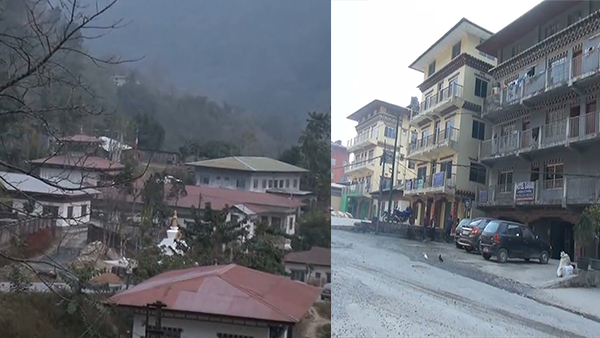 Farmers of Maenchhu and Gashari under Norboogang Gewog in Nganglam Dungkhag are confused with the quarantine protocol in the dungkhag. Most of them own lands in Tenzinwama and Satsaloo villages which are identified as high-risk zones. And as per protocol, they have to be in a facility quarantine for a week while returning from their work.
Farmers of Maenchhu and Gashari under Norboogang Gewog in Nganglam Dungkhag are confused with the quarantine protocol in the dungkhag. Most of them own lands in Tenzinwama and Satsaloo villages which are identified as high-risk zones. And as per protocol, they have to be in a facility quarantine for a week while returning from their work.
Tenzinwama and Satsaloo villages are located very near to Bhutan-India border. During the zoning, the two villages were identified as a high-risk area. The COVID-19 task force in the dungkhag requires everyone coming from a high-risk to the low-risk area to undergo a week of quarantine. While the quarantine protocol ensures safety for everyone, farmers feel it will undo their hard work.
“Our land is located near the bordering area and now we are worried we won’t be able to harvest anything. Now is the time for weeding maize, soya beans and others crops. I have planted almost 3,000 areca nut trees there. Now it would be damaged by elephant and filled with bushes. Even though, I was more worried about dying from this pandemic,” said Tenzin Nidup, a farmer from Gashari in Pema Gatshel.
“If we stay there and work, I don’t have a proper home to stay there. I stayed with a neighbour for two to three days while working there. I started only from this year. After hearing that we cannot go there for work and come back without quarantining, we stopped going down. Now our maize field would be filled with weeds. If this remains as it is, what would we eat? We don’t have any income. These days even the orange trees never give a good yield,” added Rinchen Youden, also from Gashari.
Likewise, farmers of Maenchhu also shared their concerns.
“Most of us live here but have to go down at Satsaloo for work. But vehicle and other movements are restricted. With it, we are very concerned. We have cultivated the crops there but we couldn’t go down to look after and we are not happy at all,” said Sherab Dorji from Maenchhu.
“It’s time to clear the areca nut trees there. And I have planted saplings too. We cultivate winter maize and millet there. But due to the restrictions, it is getting late now,” added Naku Dorji, also from Maenchhu.
The task force in the dungkhag said a one time permit will be issued to farmers who wish to go to their fields in the high-risk area. However, no farmers have approached for the permit to date. Whereas the farmers are sceptical about the one time permit.
“If we are not allowed to come back after entering there, it will be a problem. Say if one gets sick here and if both of us are there for work, there is no one to look after the cattle and house here. We are not comfortable at all. Although we are worried about contracting this disease, we are also equally concerned with the threatening shortage of food,” said Rinchen Youden, from Gashari.
“The imports have already stopped, we have to produce ourselves to feed us. Now there is no option for us than working in the field. I have decided to go down and stay until I finish my work,” said Jadrel Zangmo, from Maenchhu.
Some farmers are hoping for relaxation from the task force.
“If we are granted an opportunity to go down morning and return in the evening directly to home without stopping in the town, it would be very convenient,” said Sherab Dorji.
Meanwhile, the COVID-19 task force in the dungkhag will be meeting to discuss the latest high-risk zoning, today. The concerns raised by people are also expected to be addressed.
Almost 200 farmers from Gashari and Maenchhu own lands in Tenzinwama and Satsaloo villages.
Thinley Dorji





